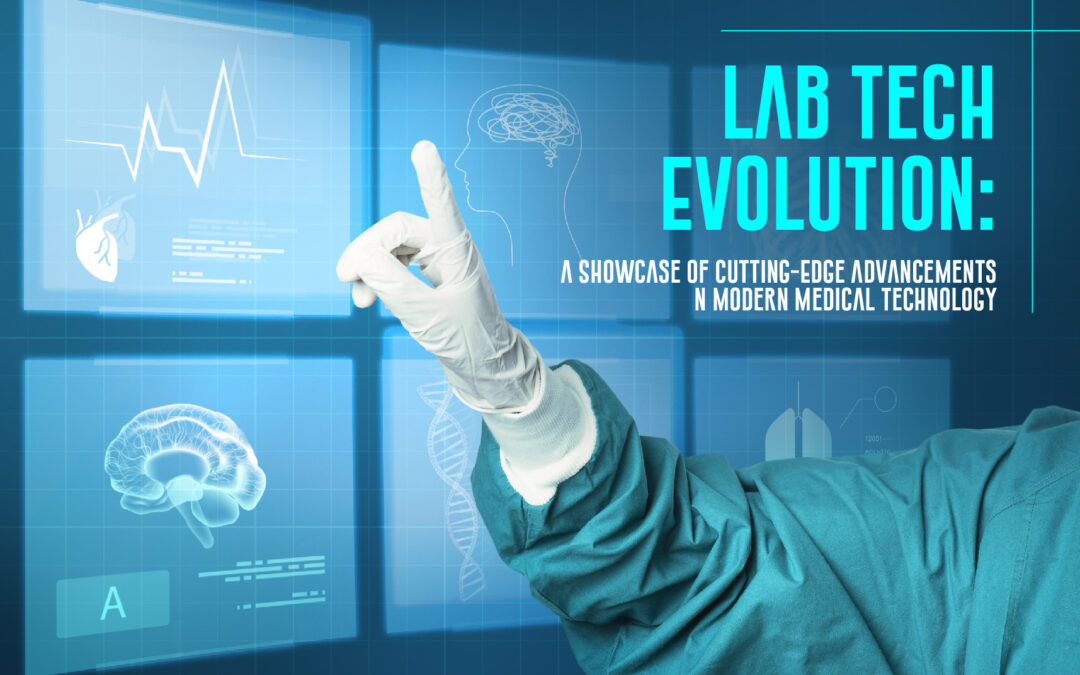Medical lab technology has evolved significantly in recent years. From sequencing technologies to artificial intelligence and more advanced point-of-care testing systems, it has truly transformed the environment in which diagnostics are conducted and healthcare treatments are delivered. This development has not only brought better outcomes for patients around the world but has also revolutionized how healthcare professionals approach the diagnosis and management of diseases.
Staffing shortages in clinical laboratories continue to be a significant challenge, with the demand for laboratory testing increasing sharply at the beginning of 2024. This emphasized the vital role that lab technologies play in modern healthcare, especially when considering the fast-paced nature of ongoing changes.
This blog post highlights some major developments related to modern medical equipment, driving the healthcare industry toward a new era of precision and efficiency.
Imaging Technology Advancements
The field of imaging technology has witnessed substantial advancements, such as MRI and CT scans, which have opened new vistas in diagnostic capabilities. Another notable innovative tool in this area is the single cell imager, a technology that enables the collection of intricate data from individual cells. This tool is crucial in understanding complex diseases and aids in precise clinical diagnostics.
By focusing on individual cells, single-cell imagers provide insights into cellular behavior and interactions, contributing significantly to research and targeted therapy development. This technology, by illuminating the intricacies of cellular dynamics, is reshaping the future of medical diagnostics and treatment strategies, offering a deeper understanding of diseases at a micro level.
Laboratory Automation Technology
Automation has been a key factor in modernizing laboratories, bringing in operational efficiency. With most healthcare organizations facing financial strains lately, labs have an acute need for improved efficiency. As a result, automation is becoming increasingly necessary for laboratories.
Automating manual processes, such as blood analysis and sample processing, also addresses the need for efficiency. Automated systems help reduce the pressure caused by staff shortages, enhance operational efficiencies, and free up lab professionals for more complex work. This technological shift not only ensures more accurate results but also delivers faster outcomes, a crucial aspect in high-demand situations.
Wearable Health Monitoring Devices
Wearable health monitoring devices have truly transformed the healthcare sector into a proactive and preventive solution. For instance, smartwatches and fitness trackers check a person’s physical state without any disturbance, thereby providing information on the go.
An example is the ECG app on the Apple Watch Series 7, which is FDA-cleared to deliver an ECG similar to a single-lead electrocardiogram. Such gadgets empower individuals to manage their health and also serve as essential tools in the discovery and management of diseases, especially those of chronic nature.
Molecular Diagnostics and Personalized Medicine
Molecular diagnostics represents the leading edge of personalized medicine, with technologies like PCR revolutionizing infectious disease testing. This offers numerous individualized therapy options based on an individual’s genetic profile across various domains, including oncology and women’s health.
These advancements enable improved treatment efficiency and reduce the risk of adverse reactions, ultimately leading to better patient outcomes.
Robotic Laboratory Assistance
Robotic assistance has ushered in a new era in laboratory management, fundamentally altering how samples are handled and experimental procedures are conducted. These robotic systems execute tasks with unparalleled precision and efficiency, significantly reducing the risks associated with human errors in daily routines.
This innovation enables laboratory personnel to redirect their focus toward complex and critical tasks, ultimately leading to increased productivity. The impact is most pronounced in laboratories processing higher volumes of samples, where the combination of accuracy and speed is paramount.
Artificial Intelligence and Data Analysis
Medical artificial intelligence plays a central role in data analysis, benefiting diagnosis, research, and drug development. Medical AI assists in interpreting complex datasets by processing vast amounts of data, enabling more informed decisions in patient healthcare.
The introduction of AI in healthcare is a significant advancement in the development of more effective treatment plans personalized for each patient, ultimately improving their outcomes.
Conclusion
The development of lab technology is a significant aspect of modern healthcare, offering numerous opportunities for diagnosis, treatment, and patient care. This will truly provide the future of healthcare with opportunities for precision, efficiency, and personalization of healthcare services.
The real source of hope and progress in the field of medical laboratory technology, where practical applications merge with innovation, can be found within this domain. We look forward to discovering advancements that will usher in an entirely new era in medical science, where humans leverage technology to create a healthier world for all of us.













